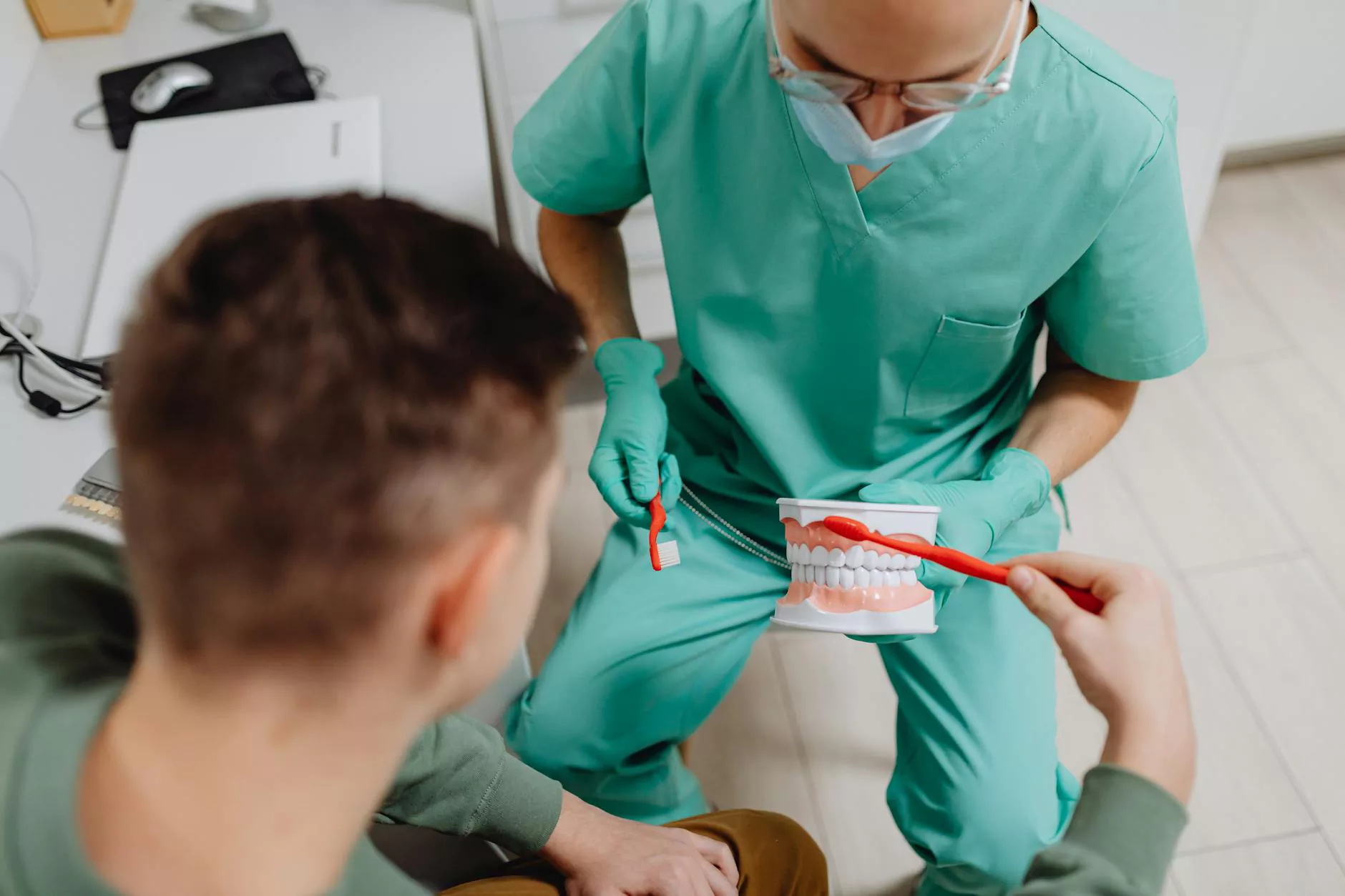Harnessing the Power of Group Therapy for Mental Wellbeing

In today's fast-paced and often isolating world, mental health has become more important than ever. Among the various therapeutic approaches available, Group therapy has emerged as a powerful tool to promote emotional healing, foster connection, and build resilience. With its unique ability to combine individual growth within a collective environment, Group therapy offers a myriad of benefits that can significantly improve quality of life for many individuals struggling with mental health challenges.
Understanding Group Therapy: A Comprehensive Overview
Group therapy is a form of psychotherapy where a small group of individuals meet regularly to discuss their issues, share experiences, and support each other's journey toward better mental health. Unlike individual therapy, which focuses solely on one person's needs, group therapy incorporates the dynamic of multiple participants, fostering a sense of community and shared understanding.
Core Principles of Group Therapy
- Social learning and modeling: Participants observe and learn from others’ coping strategies.
- Normalization of experiences: Realizing that others face similar struggles reduces stigma and isolation.
- Empowerment through shared experiences: Mutual support fuels confidence and motivation.
- Constructive feedback and accountability: Group members offer constructive insights, helping each other stay committed to growth.
Types of Group Therapy and Their Specific Benefits
Group therapy is not a one-size-fits-all approach. Different formats cater to various needs, and understanding these differences can help individuals choose the most suitable option for their mental health journey.
1. Support Groups
Support groups focus on sharing personal experiences related to specific issues such as depression, anxiety, grief, or addiction. These groups aim to provide emotional comfort and practical advice from peers who understand firsthand the challenges faced.
2. Psychoeducational Groups
Engaging in Group therapy that emphasizes education allows participants to learn about mental health conditions and develop coping skills within a supportive environment. This format often incorporates structured lessons led by mental health professionals.
3. Skills Development Groups
This type of Group therapy is geared toward enhancing specific skills such as emotional regulation, assertiveness, stress management, or communication. It provides practical tools that participants can apply daily.
4. Process-Oriented Groups
Focusing on the emotional and interpersonal processes within the group, these sessions facilitate deep self-awareness and insight, helping participants uncover and resolve underlying issues.
The Scientific and Psychological Benefits of Group Therapy
Research consistently underscores the effectiveness of Group therapy in improving mental health outcomes. The collective nature of this approach harnesses the fundamental human need for connection and belonging, which plays a crucial role in healing and resilience.
Enhanced Social Support
Being part of a group combats feelings of loneliness, providing a robust network of support. This social connection has been shown to lower stress hormones, boost immune function, and foster a sense of hope and belonging.
Increased Self-Awareness and Self-Esteem
Listening to others’ experiences and sharing one's own fosters reflection and insight, promoting personal growth. As individuals recognize their commonalities and strengths, self-esteem naturally improves.
Cost-Effectiveness and Accessibility
Compared to individual therapy, Group therapy offers a more affordable option, often enabling more people to access mental health services. It also allows convenient scheduling and fosters a communal healing environment.
Real-Time Practice of Social Skills
Participating in Group therapy provides a safe space to practice communication and interpersonal skills, essential for daily life interactions and relationships outside therapy.
Implementing Effective Group Therapy Sessions at LimbicFlow
LimbicFlow specializes in creating tailored Group therapy programs designed to meet diverse mental health needs. Here’s how they ensure effective and impactful sessions:
1. Expert Facilitation
Sessions are led by licensed mental health professionals with extensive experience in group dynamics, trauma, and emotional wellness. Skilled facilitators create a safe, respectful environment that encourages open sharing.
2. Evidence-Based Practices
The programs integrate proven therapeutic modalities such as Cognitive Behavioral Therapy (CBT), Dialectical Behavior Therapy (DBT), Mindfulness-Based Stress Reduction (MBSR), and Acceptance and Commitment Therapy (ACT).
3. Personalized Group Formation
Groups are carefully curated based on shared issues, age ranges, and personalities to foster cohesion, trust, and safety.
4. Focus on Empowerment and Growth
The sessions emphasize building resilience, emotional regulation, and interpersonal effectiveness, ensuring participants leave with tangible skills and insights.
The Role of Community in Mental Health: Why Group Therapy Works
Humans are inherently social beings. Our need for connection influences our mental and emotional health profoundly. Group therapy leverages this fundamental truth by creating a community atmosphere where individuals can find validation, understanding, and motivation.
Building a Sense of Belonging
Shared experiences and mutual support diminish feelings of alienation, boosting confidence and reinforcing the notion that one is not alone in their struggles.
Encouraging Mutual Accountability
Group settings foster accountability, encouraging members to follow through on personal goals and practice new skills regularly.
Normalizing Challenges and Reducing Stigma
Participants often discover that everyone faces difficulties, reducing shame and promoting openness about mental health concerns.
Strategies to Maximize Outcomes from Group Therapy
- Active participation: Be engaged, honest, and open-minded during sessions.
- Consistent attendance: Regular attendance ensures continuity and deeper progress.
- Practice outside the group: Implement learned skills in real-life situations to reinforce growth.
- Build relationships: Connect authentically with group members for sustained support.
- Provide and receive constructive feedback: Foster a respectful environment that encourages growth and self-awareness.
The Future of Group Therapy: Innovations and Emerging Trends
As technology advances, Group therapy is evolving to include virtual sessions, hybrid models, and specialized programs targeting specific populations such as veterans, youth, or corporate teams. These innovations aim to increase accessibility, flexibility, and customization for diverse needs.
Virtual and Online Group Therapy
The COVID-19 pandemic accelerated the adoption of digital mental health services. Virtual Group therapy maintains all the benefits of traditional groups while offering convenience and safety for participants worldwide.
Specialized and Themed Support Groups
Future trends include niche groups that address unique issues such as trauma recovery, addiction, trauma, or workplace burnout, fostering tailored support and healing.
Choosing the Right Group Therapy Program at LimbicFlow
Embarking on a Group therapy journey requires thoughtful consideration. Factors to consider include the specific mental health goals, personal preferences, and group composition. LimbicFlow's expert team provides personalized assessments to match clients with the most suitable programs, ensuring a supportive and effective therapeutic experience.
Conclusion: Embracing the Transformative Power of Group Therapy
In summary, Group therapy offers an unparalleled pathway to emotional resilience, personal insight, and community connection. It taps into the innate human desire for belonging and mutual support, fostering healing that transcends individual efforts. As a leading provider in the mental health space, LimbicFlow is committed to delivering innovative, compassionate, and evidence-based Group therapy programs to empower individuals on their mental health journeys. Embrace the collective strength found within supportive communities and unlock your potential for lasting wellbeing.









